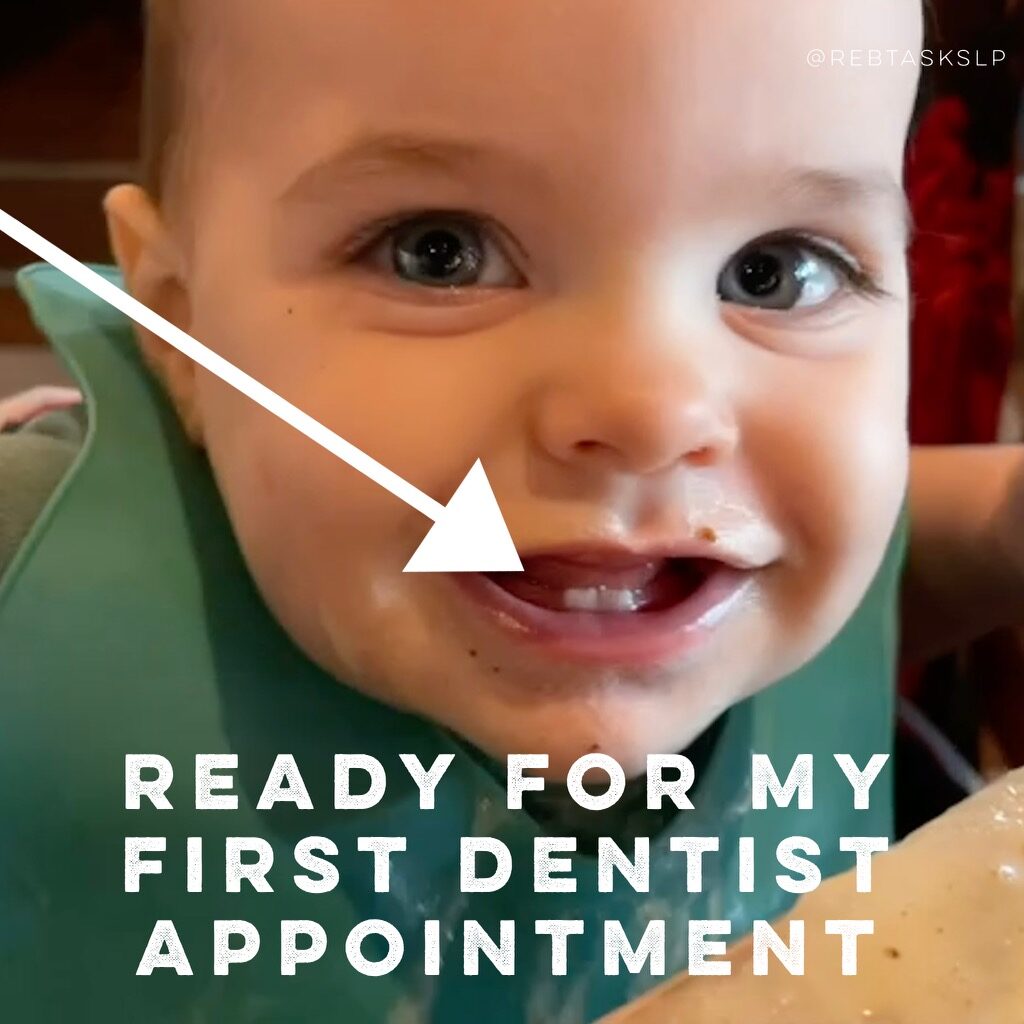Are you ready for your child’s first dentist appointment?
The ADA, American Dental Association, recommends the first dental appointment to be within 6 months of a baby’s first tooth, but no later than the child’s first birthday…
Your babies teeth and mouth are DIRECTLY correlated to their speech and feeding development. This is why speech pathologists want children to go to the dentist as early as possible, especially if your child had latching challenges in infancy. I especially love working with dentists to guide me on their clinical opinions to strategize best treatment approaches for the kids we see. Whether that be an Orofacial Myology approach or feeding and oral motor approach collaboration is key. Depending on the needs of the child having two clinical opinions makes therapy so much more successful!
More and more I am receiving evaluation request from dentists as they are noticing different patterns emerging across breathing, speech and the teeth. The more we communicate the better!
In New York City we are especially lucky because we have so many knowledgeable and caring pediatric dentists all over the city! It makes it super easy to schedule and find a dentist in your area.

